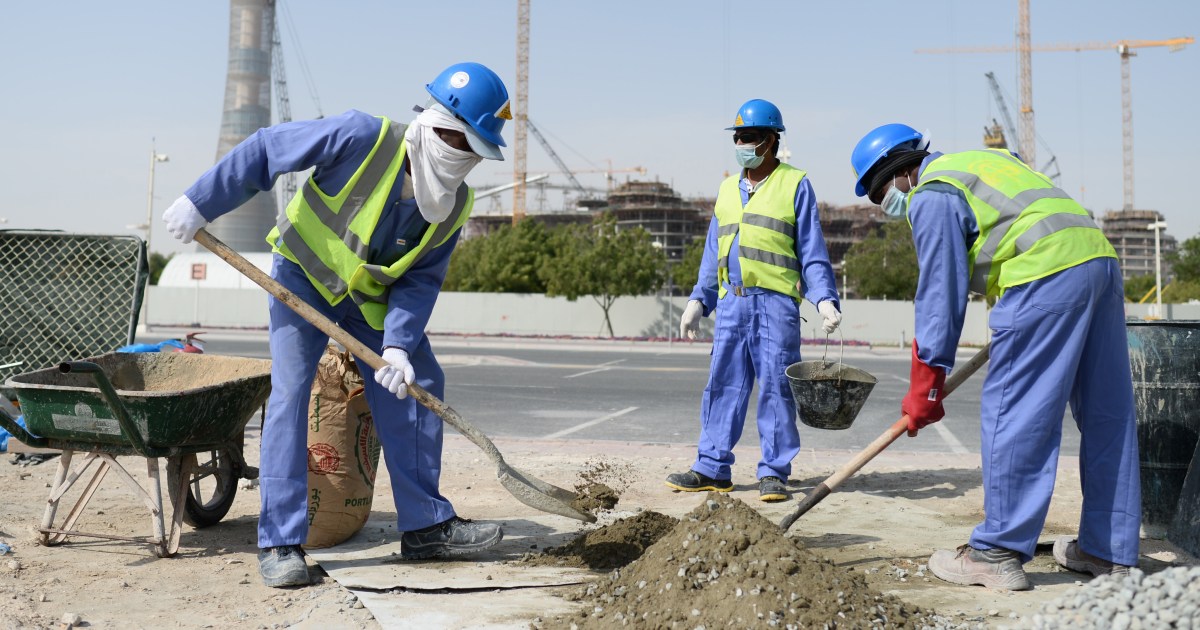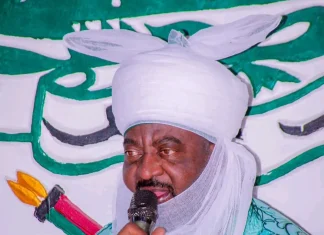More than 400 migrant workers died in Qatar in the years leading up to the World Cup, the man in charge of the body responsible for organizing the tournament has said, reigniting a debate over the treatment those who built over $200 billion worth of structures for the tournament.
Hassan al-Thawadi, the secretary-general of Qatar’s Supreme Committee for Delivery and Legacy, told the British journalist Piers Morgan on Talk TV on Tuesday: “The estimate is around 400, between 400 and 500, I don’t have the exact number, that’s being discussed.”
Follow along for live coverage of the World Cup.
Morgan had asked for “the honest, realistic total” of migrant workers who had died in the course of contributing to projects somehow related to the World Cup.
After the interview, the Supreme Committee issued a statement appearing to contradict al-Thawadi, saying that he was referring to 414 deaths from across the whole country, not necessarily all related to the World Cup.
“Separate quotes regarding figures refer to national statistics covering the period of 2014-2020 for all work-related fatalities (414) nationwide in Qatar, covering all sectors and nationalities,” a Supreme Committee spokesman said in an email.
The figure has not previously appeared in official reports from the Supreme Committee or FIFA, soccer’s global body.

The Supreme Committee did not respond to NBC News’ questions on where or how the 414 figure was collated or how many of those deaths were directly related to World Cup projects.
Al-Thawadi added in the interview that “one death is a death too many, plain and simple,” and pointed to improvements in health and safety and other social reforms in the last decade, including the scrapping of the punitive kafala system, still widely used across the Middle East, where immigrants hand over passports to employers.
There are about 2 million migrant workers in Qatar — an estimated 95 percent of the country’s total working population. Overwhelmingly young men from India, Bangladesh, Pakistan, Nepal and the Philippines, they were responsible for building seven brand-new stadiums, a new metro train line, dozens of hotels and related infrastructure in the last decade.
Human rights groups have estimated that thousands of migrant workers have died in Qatar in the last decade, many of whom may have worked on World Cup-related projects.
Steve Cockburn, Amnesty International’s head of economic and social justice, said in a statement Tuesday: “Over the last decade, thousands of workers have returned home in coffins, with no explanation given to their loved ones.”
“Qatar’s extreme heat and grueling working conditions are likely to have contributed to hundreds of these deaths, but without full investigations the true scale of lives lost can never be known,” he said. “Meanwhile, families are suffering the added anguish of severe financial insecurity that comes from losing the main wage earner.”

The International Labor Organization, a U.N. agency that has an office in the country’s capital, Doha, said in a report last year that 50 migrant workers across all sectors died in work-related accidents in 2020, in addition to 38,000 work-related injuries, 500 of them classed as severe.
The organization declined to comment on al-Thawadi’s comments this week.
Barun Ghimire, a human rights lawyer in Nepal who has represented the families of workers who have died in Qatar, told NBC News last year: “This 2022 World Cup, I often call it the blood diamond of World Cups. … Everyone knows migrant workers are dying. And they did not know about this risk.”
The Qatar World Cup, the first to be held in an Arab nation, has attracted plenty of controversy over not just the treatment of migrant workers, but Qatar’s anti-LGBTQ policies and the banning of some fan costumes from stadiums.
Share your story or advertise with us: Whatsapp: +2347068606071 Email: info@newspotng.com

















